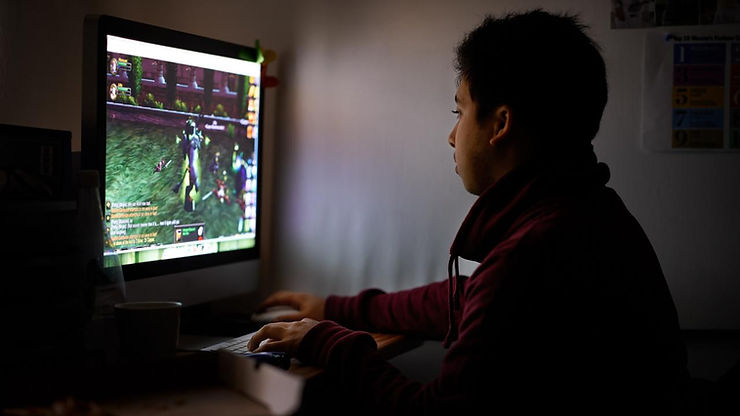By: Johnn Jin
Research shows that diehard gamers can start hearing sound or hallucinating about video games in real life. Teenagers who play video games for many hours a day may face this risk. Australian and New Zealand psychiatrists in a recent meeting discussed the gaming transfer phenomenon, or GTP. This phenomenon can cause gamers to see things that are not really there. What may cause this is addiction to video games, or game disorder (GD). This is when kids will skip meals and can’t stop playing video games.
The group of psychiatrists estimates 10 percent of youth have GD, and the prevalence has exploded since the pandemic. Problems happen when a gamer gets angry when someone tries to stop them playing video games, because the gamer is unable to stop themselves from playing, psychiatrist Kavita Seth says. “They prioritize it over sleep, over having meals, going to school, completing school homework, completing social activities,” Dr Seth said.
GD patients can also develop GTP, hearing audio and seeing elements of the game they were playing in real life. Psychologist Dr Angelica Ortiz de Gortari claims to have come up with the name “GTP” during a study in 2010.
One gamer in the study described his hallucinations: “When I really was a hardcore player in WoW (World of Warcraft), when I got my adrenaline pumping, I started seeing health bars above people’s heads,” one gamer said.
Daniel Owens, another gamer, described his experience with insomnia when playing Portal 2. “It was to the point that it interrupted my sleeping patterns,” he said. “It felt as if my body went to sleep but my mind was still working. It seems to happen in games with frequent sidekick interaction or a narrator. I remember specifically on another occasion, after Super Mario Sunshine came out, that I could not sleep for a full night for nearly a week after playing it. That was the worst.”
Dr de Gortari says GTP is a reason to reflect on how well the human brain will cope as technology continues to get more high-tech.











